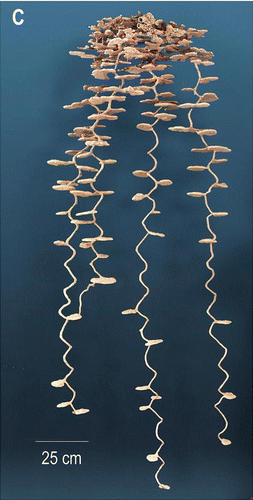“Death begins in the colon.” Elie Metchnikoff
We all most probably have a very complex relationship with food. Is it only something we eat to fuel our lives? Is our choice of food an emotional response to the chaotic world around us, or a culturally learned tradition inherited from our ancestors? We don’t spend a lot of time looking at our accumulated eating habits and choices and what role these preferences might have on our health, energy, emotions, and quality of life.
Where does our food come from? What is the shape of the soils from which it is grown? How is it processed, prepared and consumed? How might our mindless consumption of various types of food together ultimately lead to illness and infirmity as we age? There are lots of issues related to what we put into our bodies.
I have always had a keen interest in food and in many ways am quite hedonistic. I love all kinds of food, and I love to experiment by trying new cuisines and new recipes. I also have an intense interest in health. The two are not mutually exclusive.
Years ago, my employer whose wife’s health continued to deteriorate in spite of his ability to afford the very best health care available, called me into his office to ask my advice regarding what he might do for her failing physical condition. I was at a loss as to what suggest. My only response was that as he was having no positive results from the allopathic medical system, he might investigate alternative medicines. He then asked that I research the alternatives. Thus began my study of alternative medicines.
I first found an online book about nutrition and how the soils have been depleted of nutrients by modern agricultural practices. I read of how agriculture since the 19th century has been selecting crops where yield and how the crop looked were given much more emphasis than the nutritional content of the product. As a result the foods we consume have much less nutritional value than those consumed by past generations. This new understanding of what has been lost though the centuries because of these practices prompted me to visit, for the first time, the local health food store.
On my first expedition into an organic, health food store I was bewildered with the long rows of vitamins and supplements which took up at least a third of the store and much more space than the produce section. I remember being perplexed and wondering if one wanted to be healthy, how would one know where to start? My personal inclination is not to take a pill or supplement. Could I improve my health solely though diet? Thus truly began a journey into health.
I began reading extensively on health and healing. I progressed from soil science, to homeopathy (which I found too complex, the Materia Medica was huge), to Ayurvedic medicine, and finally settling on studying Traditional Chinese Medicine (TCM). I had then found a system which resonated with me. The Chinese medicine seemed to apply most to the temperate climate in which I lived. I also found the whole system to work intuitively. From a basis of yin/yang and balance, I came to see that the system works from an energy perspective related to the electro (yang)-magnetic (yin) energy of the universe in which all life exists.
Yin is an expansive energy and yang a contractive one. Everything in existence falls within these polarities. In the summer, a yang season, in order to balance it is best to eat yin foods like leaves, summer watery fruits and vegetables in order to dispel heat and balance oneself accordingly to the season. In winter, a yin season, yang contracted foods are best eaten in order to adjust to the season as they are warming. We can then come to easily understand the good judgment of eating local foods grown in season. We do crazy things like consuming icy cold drinks (extreme yin and cooling) in the winter and big fat juicy hamburgers (extreme yang and warming) in the summer. For years I personally was freezing when the temperature dropped below 70 degrees. Especially the winter was a problem. I would come home at night, snuggle into bed to warm up and eat dinner, take a hot bath and then return to spend the rest of the evening in bed under the covers. I later learned I suffered from “internal cold.” The foods I was consuming were creating a cold environment within my core, so naturally I could not regulate my external temperature.
We have long ago forgotten the wisdom related to food and energy. Most religions retained this information as in the dietary food laws in the Book of Leviticus in the Christian Bible. Unfortunately the knowledge was privileged and up to the time of Martin Luther was enforced with restrictions by the church. The basis for understanding food energy and proper combining was not taught by the religious hierarchy but rather used as means of controlling and bilking the people. Luther’s lists of ninety-five theses which he nailed to the church door in protest of abuses by the Church hierarchy, an event which is purported to have set off the Protestant Reformation, addressed the Church’s selling of indulgences and pardons. Among other things, the poor were quite upset by the aristocracy’s use of indulgences in relation to increasing their personal meat consumption. Once the break with the church occurred, meat consumption in Europe sky rocketed resulting in an over utilization of protein which persists to this day, to our personal physical detriment and that of our planet as well. Methane gases produced from animals is the second biggest component of green house gases, even more so than automobile emissions.
-----------------------------
There are five primary flavors and thus energies which are also important to understand in order to maximize one’s health. These flavors should ideally be consumed from healthy sources. Our bodies are always seeking balance, but we have been apt to misread its clues by our unbalanced diets and lifestyles. Basically the five flavors are: pungent, bitter, sour, sweet, and salty. Pungent dissolves toxins in the body, bitter and sour cleanse and eliminate these toxins, sweet is fortifying, and salty is softening. Daily we need each of these flavors in our diet. Often food cravings are the result of an imbalance. For instance, when one craves sweet rather then going and eating a Snickers bar you might rather balance the craving eating something bitter, pungent or sour.
The importance of diet cannot be overstated. Generally women being more yin suffer yin excess diseases and the converse for men; enduring more yang excess diseases. Women eat too much sugar—extreme yin, men eat too much meat and potatoes—extreme yang. The resulting polarity excesses affect not just our personal health but our relationships to each other and the planet as well.
I wished to introduce this topic when first reading warnings about the swine and avian flu alerts. A virus such as the flu is an extreme yin condition and might be balanced with extreme yang. For instance, I have been sharing this remedy with friends for a number of years: at the onset of a cold, when your sinuses are drippy and secretions watery and clear, if immediately you have either a strong, fresh ginger tea or a tablespoon of miso paste in hot water, pretty much you can stop the cold in its tracks. You have balanced the energy. I first learned about how the knowledge of food energies might be practically applied in times of catastrophe, when I read of a Japanese doctor who applied this information to his patients affected by the bombing of Nagasaki and Hiroshima. Generally chemicals are extreme yin so he counseled his patients to consume extreme yang until rebalancing.
I begin learning TCM over 12 years ago. At the time, I suffered from numerous maladies that I equated to “just growing older.” By adapting a new diet, and making up various herbal teas to address each health issue I was able, one-by-one, to assist the natural intelligence of my body to seek balance, and heal the problem before it was able to develop into a health crises. The primary tool on my bookshelf is The Green Pharmacy by James A. Duke—an herb book catalogued by malady rather than by herbs. Generally, one should never use one sole herb. Through my study of Chinese herbology, I learned to balance the energies of the herbs I used for the teas; sound familiar? Use leaves (yin) and roots (yang). Many roots which are beneficial for liver health are very bad tasting so use of herbs like peppermint, spearmint, etc., can help mask the offensive flavors. Don’t overuse a remedy. If you must continue a remedy for any duration of time, give your body a rest periodically by discontinuing its use for a few days. By experimenting with creating my own herbal teas, I produced some very pleasant tasting beverages for healing my body. Who says that what’s good you has to taste bad or be offensive? It’s quite satisfying to be able to reclaim one’s health in such a manner without spending a lot of money. All one needs is a desire to learn, experiment, and learn to pay attention to the signals from your body. For too long we’ve been encouraged to turn over the responsibility of our lives to some “authority.” My personal credo has been, and I mean no disrespect, “if the authorities knew so damned much, why are there so many damn problems.”
See the “Health and Nutrition” section below for more information and resources.











No comments:
Post a Comment